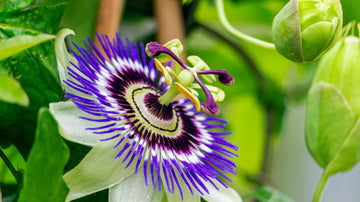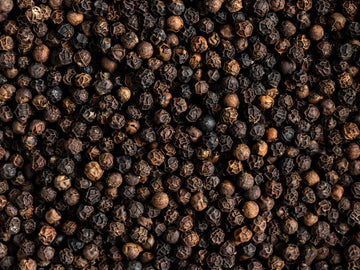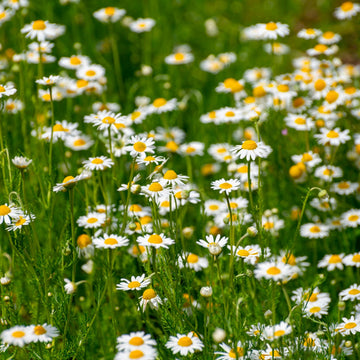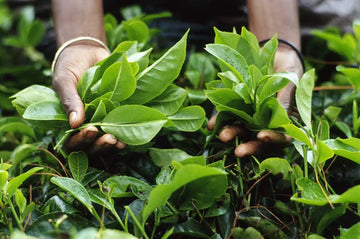Passiflora is a genus of over 500 species of flowering plants that has been used to treat a variety of ailments and conditions since the 16th century. These plants are native to the southeastern US and are commonly called maypop or passionflower. New species continue to be identified and the plant has been naturalized in other parts of the world. For example, the blue passion flower, or Passiflora caerulea, now grows wild in Spain
In the 16th century Spanish christian missionaries in South America named the plant Passiflora which comes from the Latin "passio" meaning suffering and "flos" meaning flower. The name was in reference to the unique physical makeup of the flower parts of the plant where its 10 petals and sepals represented the ten faithful apostles. The outer parts of the flower known as the radial filaments, of which there are 100s, represent the crown of throrns worn by Jesus during the crucifixion. There are many other features of the plant that represent things in Christianity. The most common species of Passiflora is incarnata which means "to make flesh" or re-incarnate.
How Does Passionflower Reduce Anxiety, Depression, and Insomnia?
To understand how passionflower reduces symptoms of anxiety, stress, and depression, we must first understand what GABA is.
What is GABA and how does it reduce anxiety?
GABA or gamma-aminobutyric acid is a neurotransmitter (helps transmit signals in the brain) that stimulates relaxation by lowering the amount of activity and excitability of neurons it binds to in the brain; it slows things down. High neural activity causes things like restlessness, stress, and anxiety. Many anti-anxiety medications such as benzodiazepines like Xanax work by increasing the effect of GABA.
How does passionflower work for anxiety?
Passionflower contains many active compounds that increase GABA levels in the brain. Two of which are called maltol and gamma-pyrone derivatives. These compounds, through multiple mechanisms, cause the activation of GABA receptors. By activating GABA receptors, it increases the amount of GABA that binds to receptors. Once bound to its receptor, the GABA then triggers a series of events that reduces the excitatory and action potential of the neuron [1].
Passionflower also contains a variety of flavanoids which are chemicals found all over the plant kingdom that provide fruits, vegetables, and flowers their color. One in particular, called Chrysin which is also a GABA modulator but through a different mechanism [2]. GABA does not only bind to its primary receptor sites, it does most of the time but there are secondary binding sites called allosteric sites. Chrysin acts as a positive allosteric modulator of GABA-A receptors, meaning it enhances the secondary receptor's response to GABA. In other words, chrysin doesn't directly activate the receptor like GABA does. Instead, it increases the receptor's sensitivity to GABA, making it more effective at producing its inhibitory effects.
What is serotonin and how does it help with depression?
Serotonin is a neurotransmitter made from an amino acid called tryptophan. It is found all around the body but primarily in the brain, digestive tract, and blood platelets. It is often referred to as the "feel-good" chemical because it plays a significant role in regulating mood, sleep, and digestion.
90% of serotonin is produced in the gut, while about 10% is produced in the brain. Serotonin in the brain is produced in the brainstem and released from nerve endings into the space between neurons called the synaptic gap. After that, it binds to serotonin receptors and initiates various chemical reactions that regulates your mood. Low levels of serotonin is associated with depression. When you have the correct levels of serotonin, you feel more focused, emotionally stable, calmer and happier. Many anti-depressants work on increasing levels of serotonin on the brain.
How does passion flower help with depression?
Passionflower contains something called alkaloids which are nitrogen containing organic compounds that produce some sort of pharmacological effect on humans. Passionflower contains two called harman and harmaline which are inhibitors of monoamine oxidase (MAO) enzymes. Neurotransmitters like serotonin cannot stay in the brain forever as their effects would be constant, they need to be broken down to maintain the correct levels and then more is made when required. MAO enzymes breakdown serotonin, so by inhibiting MAO, their is less serotonin being broken down and more serotonin available in the brain [3].
Does passionflower help with anxiety and sleep?
Research and studies on passionflower yield promising results, highlighting its potential benefits. One standout study was conducted on 36 patients with diagnosed generalized anxiety disorder (GAD). The study gave 18 participants Passiflora incarnata extract plus placebo and another 18 oxazepam (a pharmaceutical anti-anxiety benzodiazepine) plus placebo for 4 weeks. At the end of the study, no significant difference was observed between the two groups. Passionflower and the oxazepam were both equally effective in treating anxiety, however the oxazepam showed results a few days quicker at the expense of greater impairment of job performance due to sedation [4].
In another study investigating the stress resilience and quality of life of adults diagnosed with nervous restlessness, 154 patients were given passionflower extract for 12 weeks. The study found that, the passionflower was statistically signifcant in effectively in improving stress resilience and quality of life in patients suffering from restlessness [5]
There have been several controlled experiments that have demonstrated reduced anxiety and enhanced sleep in animals given passion flower. In a study testing the effects of Passiflora incarnata on human sleep, 41 participants were given passionflower tea or a placebo. By the end of the study, sleep quality showed a significantly better rating for passionflower compared with placebo [6].
How to Take Passionflower?
When should you take passionflower?
Passionflower can be taken anytime day or night, it is personal preference. Many users may find it energizing and take it in the morning, while others may find it makes them too relaxed to be productive and they take it in the evening.
Should you take passionflower with food?
Passionflower can be taken with or without food. Some users may find it leads to mild stomach discomfort so they take it after a meal or small snack.
What dose of passionflower should you take?
For passionflower extract, most studies used dosages between 300 to 500 mg one to three times a day. Anecdotally, users in a Reddit community report 400mg being a sweet spot for many, although a small minority may only find relief at even higher doses.
In a tea or infusion, a common dosage is 1 to 2 grams of dried herb steeped in hot water for 5 to 10 minutes.
Passionflower tinctures are typically taken in doses of 10 to 30 drops, one to three times per day. It's often recommended to dilute the tincture in water before consumption.
One serving of ZenHighs provides 400mg of high quality Passiflora incarnata. ZenHighs differs from competitors in that it is combined with 6 other synergistic and clinically proven ingredients to provide greater relief from stress and anxiety than passionflower alone.
How long does it take to feel passionflower?
Passionflower users in Reddit communities report they can feel the calming and anxiolytic (anti-anxiety) effects of the plant within 30 min to 60 min. However, some studies point out that passionflower may take a few weeks to reach its full effect.
ZenHighs is a potent blend of 7 studied and proven adaptogenic plants. While ashwagandha takes its time in ramping up to its full effects, the lemon balm, l-theanine, and others in ZenHighs are dosed at the studied levels which can do the heavy lifting in providing a calm and balanced mind. Learn more about ZenHighs on the product page.
- Grundmann O, Wang J, McGregor GP, et al. Anxiolytic Activity of a Phytochemically Characterized Passiflora incarnata Extract is Mediated via the GABAergic System. Planta Med. 2008 Dec;74(15):1769-73.
- Singh B, Singh D, Goel RK. Dual protective effect of Passiflora incarnata in epilepsy and associated post-ictal depression. J Ethnopharmacol. Jan 6 2012;139(1):273-279.
- Dhawan K, Kumar S, Sharma A. Anti-anxiety studies on extracts of Passiflora incarnata Linneaus. J Ethnopharmacol. Dec 2001;78(2-3):165-170.
-
Akhondzadeh S, Naghavi HR, Vazirian M, Shayeganpour A, Rashidi H, Khani M. Passionflower in the treatment of generalized anxiety: a pilot double-blind randomized controlled trial with oxazepam. J Clin Pharm Ther. 2001 Oct;26(5):363-7. doi: 10.1046/j.1365-2710.2001.00367.x. PMID: 11679026.
- Judith GibbertFabian KreimendahlJennifer LebertReinhard RychlikInga Trompetter; Improvement of Stress Resistance and Quality of Life of Adults with Nervous Restlessness after Treatment with a Passion Flower Dry Extract. Complement Med Res 28 April 2017; 24 (2): 83 89. https://doi.org/10.1159/000464342
- Ngan A, Conduit R. A double-blind, placebo-controlled investigation of the effects of Passiflora incarnata (passionflower) herbal tea on subjective sleep quality. Phytother Res. 2011 Aug;25(8):1153-9. doi: 10.1002/ptr.3400. Epub 2011 Feb 3. PMID: 21294203.




